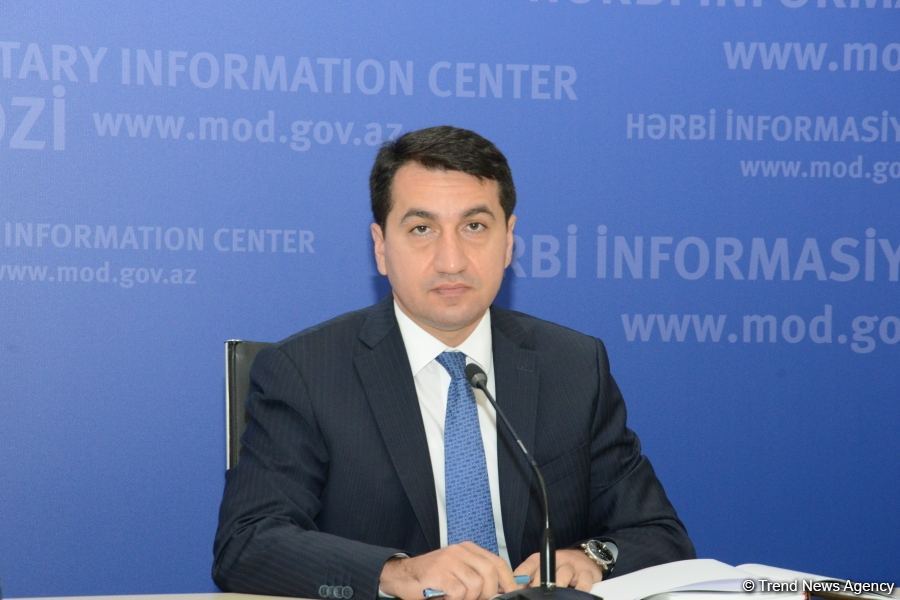BAKU, Azerbaijan, Nov.3
Trend:
Armenia started an information war against Azerbaijan, in response to which, from September 27 to November 2, President of Azerbaijan Ilham Aliyev gave over 24 interviews to different international authoritative media structures, Assistant to the President of Azerbaijan, Head of the Foreign Policy Affairs Department of the Presidential Administration Hikmat Hajiyev said.
Hajiyev made the remark at a briefing held on Nov.3, Trend reports.
He stressed that some interviews lasted an hour or two hours, and thus, President Ilham Aliyev brought the facts of Azerbaijan to the world community.
"During the interviews, President Ilham Aliyev was asked provocative questions. Despite this, he answered all questions demonstrating respect for freedom of the press. However, media structures that objectively cover the fair struggle of Azerbaijan in the world are subjected to pressure and threatened with physical violence from the Armenian lobby," added the president’s assistant.
Armenian Armed Forces launched a large-scale military attack on positions of the Azerbaijani army on the front line, using large-caliber weapons, mortars, and artillery on Sept. 27.
Azerbaijan responded with a counter-offensive along the entire front. As a result of retaliation, Azerbaijani troops liberated a number of territories previously occupied by Armenia, as well as take important, strategic heights under control.
The fighting continued into October 2020, in the early days of which Armenia has launched missile attacks on Azerbaijani cities of Ganja, Mingachevir, Khizi as well as Absheron district.
Despite the fact that so far the parties have reached an agreement on a humanitarian ceasefire three times, Armenia continues to violate this agreement.
The conflict between the two South Caucasus countries began in 1988 when Armenia made territorial claims against Azerbaijan. As a result of the ensuing war, the Armenian Armed Forces occupied 20 percent of Azerbaijan, including the Nagorno-Karabakh region and seven surrounding districts.
The 1994 ceasefire agreement was followed by peace negotiations. Armenia has not yet implemented four UN Security Council resolutions on the withdrawal of its armed forces from Nagorno Karabakh and the surrounding districts.






